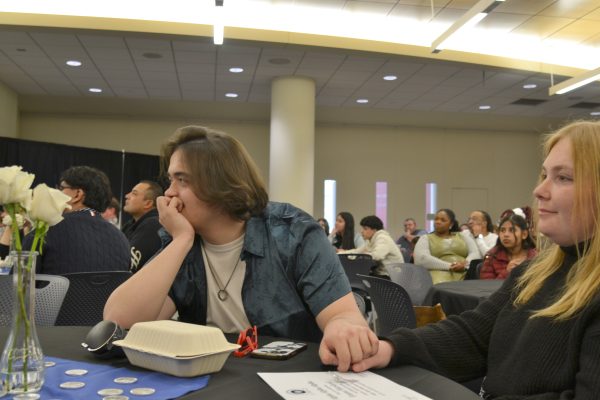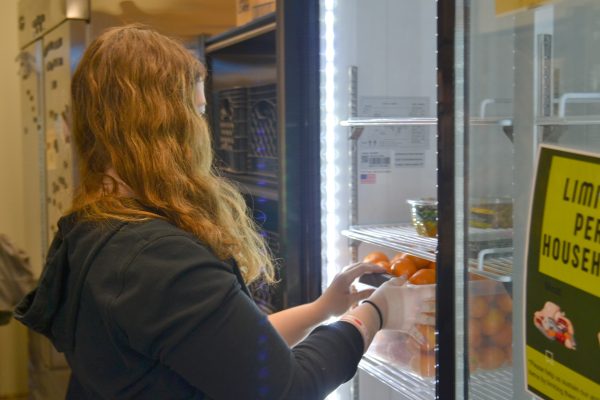Shut Down Plan Still Drafting?
Dining Services dodges questions regarding what happens to meal plans if Hamline shuts down again.
October 7, 2020
After beginning the fall semester under hybrid conditions five weeks ago, Hamline is still open and operating under the same COVID-19 threat level as when it began this year. This comes only months after Hamline went completely virtual for the spring semester of the 2019-2020 school year.
With the hybrid campus activity, Dining Services has been operating similarly to years past, only with COVID-19 safety measures in place. As for a concise plan for dining refunds if campus were to shut down again, no clear plan has been shared.
“We have contracts with our students and we want to do everything that we can to keep those contracts to ensure that students have housing and meals through each semester,” said Patti Klein-Kersten, vice president of student affairs and dean of students, regarding the plan for meal plans and declining balance (DB) if Hamline has to shut down again. “Last semester there were refunds for both housing and meal plans for those students that did not remain on campus.”
As of March 13, 2020, Hamline put a system in place to combat the ever-rising coronavirus by extending spring break until April 1. This decision then turned into the school encouraging students to stay home or in other residences for the rest of the spring semester if possible. Students who moved off campus to finish the school year overwhelmingly felt that the refunds they received did not represent how much was lost.
“In terms of meal plan, I don’t know that the 30% refund was truly fair to the students who were no longer using the dining center once campus closed down. We went home mid-semester.” said sophomore Doug Voigts. “I can understand the financial strain the university was put under by even that 30% loss of profit from meal plans/room and board. I sympathize with that. However, that is a 20% loss for any student who may then have to provide their own food and/or housing. If we weren’t using the dining center for 50% of the semester, why did we not get a 50% refund?”
“Dining services stayed open to serve meals to students through finals so that students who remained on campus [with] meal plans had meals,” Klein-Kersten said. “We worked with Aramark and they worked with us to ensure that students were taken care of. That was all of our primary concern.”
Students could have received refunds for housing, dining and work-study. However, no money was refunded for any lost DB.
“I was most disappointed by the lack of what appeared to be an equitable ‘students first’ approach to the whole situation,” Voigts said. “I understand that higher education is not excluded from the reins of capitalism, but you’d think a university with the slogan ‘do all the good you can’ would place a little more concern and grace into their COVID response.”
In search of answers for plans regarding if campus were to shut down again, Courtney Cawthon, director of Dining Services, declined to be interviewed and instead directed questions to Patti Klein-Kersten. There were no direct answers given to determine if there is a plan, or what it looks like.
“[I hope they] give back a proper amount percentage-wise [for the] year,” said sophomore Angel Kidd. “But make it more clear where they are getting that number from so people aren’t wondering so much.”





